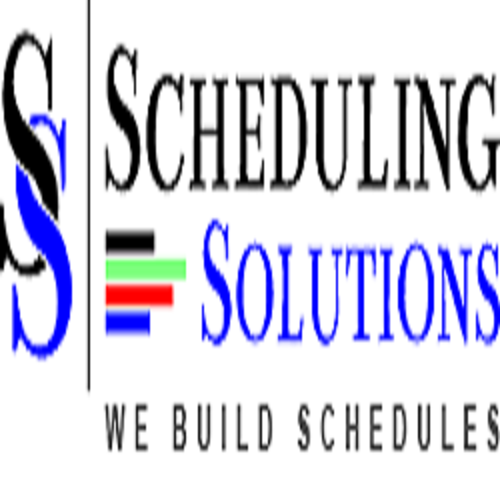Every successful project begins with a solid plan, but without proper scheduling, even the best strategies can fall apart. Deadlines get missed, resources become overstretched, and costs spiral out of control. This is where Project Scheduling Assistance plays a critical role. Whether it’s a small-scale assignment or a multi-million-dollar development project, having structured scheduling support ensures teams stay aligned, progress is monitored, and objectives are achieved efficiently.
In this article, we’ll explore what project scheduling assistance involves, why it matters, the tools and techniques used, and how businesses benefit from professional support in this area.
What Is Project Scheduling Assistance?
Project scheduling assistance refers to the professional support provided to create, monitor, and manage project timelines. It involves developing a roadmap of tasks, assigning resources, identifying dependencies, and tracking progress against set deadlines. Unlike ad-hoc planning, scheduling assistance provides a structured approach, ensuring that each stage of the project aligns with overall goals.
For many businesses, this support comes from project managers, consultants, or dedicated scheduling specialists who use advanced tools and methodologies to keep projects on track.
Why Is Project Scheduling Assistance Important?
Projects today face increasing complexity. From coordinating remote teams to managing large-scale infrastructure builds, the risks of delays and budget overruns are higher than ever. Scheduling assistance is vital because it:
- Improves visibility into timelines, milestones, and deliverables.
- Prevents resource overload by balancing assignments across teams.
- Identifies risks early by analyzing dependencies and bottlenecks.
- Supports accountability by assigning clear roles and deadlines.
- Keeps stakeholders informed through regular progress updates.
Without structured scheduling support, teams often find themselves reacting to problems instead of preventing them.
Key Elements of Project Scheduling Assistance
1. Task Breakdown and Sequencing
Projects are divided into smaller, manageable tasks. Each task is sequenced logically, ensuring dependencies are accounted for.
2. Resource Allocation
Scheduling involves matching tasks with the right people, tools, and budget to ensure efficiency and avoid bottlenecks.
3. Timeline Development
Clear timelines are established using calendars, milestones, and visual tools like Gantt charts.
4. Risk Assessment
Potential challenges are identified in advance, and contingency plans are built into the schedule.
5. Ongoing Monitoring and Adjustments
Schedules are updated continuously to reflect real-time progress, delays, or changes in scope.
Tools Used in Project Scheduling Assistance
The effectiveness of project scheduling often depends on the tools and software being used. Some of the most common include:
- Microsoft Project – Ideal for detailed scheduling and large-scale projects.
- Primavera P6 – Widely used in construction and engineering for complex scheduling.
- Smartsheet – Flexible and collaborative with spreadsheet-style management.
- Asana & Trello – Great for smaller teams and straightforward projects.
- Monday.com – Customizable workflows for various industries.
These tools provide visibility, automation, and collaboration features, making scheduling more accurate and efficient.
The Role of Professionals in Project Scheduling Assistance
While tools are essential, human expertise is equally important. Professional scheduling assistance often comes from project managers, consultants, or scheduling specialists who:
- Understand industry-specific requirements.
- Use proven methodologies such as Critical Path Method (CPM) or Agile.
- Provide objective insights into resource utilization.
- Facilitate communication between different departments or contractors.
- Ensure compliance with regulations and client expectations.
The combination of advanced tools and expert guidance makes project scheduling assistance a powerful driver of success.
Benefits of Project Scheduling Assistance
1. Timely Delivery
Well-managed schedules reduce the likelihood of missed deadlines, ensuring projects stay on track.
2. Cost Efficiency
Better scheduling reduces wasted time and resources, ultimately controlling expenses.
3. Stronger Collaboration
Teams work more effectively when responsibilities and deadlines are clear.
4. Risk Reduction
By spotting delays early, corrective actions can be taken before they escalate.
5. Client Confidence
Stakeholders feel more secure when they see transparent, well-maintained schedules.
Real-World Applications of Scheduling Assistance
Project scheduling assistance is widely used across industries:
- Construction – Tracking subcontractor tasks, procurement, and site milestones.
- IT and Software – Aligning agile sprints, product releases, and testing phases.
- Healthcare Projects – Coordinating equipment installations and facility expansions.
- Event Management – Ensuring logistics, vendors, and staff are synchronized.
- Manufacturing – Planning production cycles, maintenance, and quality checks.
In each of these sectors, proper scheduling minimizes risks and maximizes efficiency.
How to Choose the Right Project Scheduling Assistance
Businesses should consider the following when seeking scheduling support:
- Industry experience – Expertise in your specific sector is invaluable.
- Technology proficiency – Familiarity with advanced scheduling tools is a must.
- Flexibility – The ability to adapt to project changes quickly.
- Clear communication – Regular updates and stakeholder involvement are essential.
- Proven track record – Look for professionals with a history of delivering successful projects.
Conclusion
In an environment where time, cost, and quality determine success, Project Scheduling Assistance is no longer optional—it’s essential. By providing structure, transparency, and proactive management, scheduling support helps organizations deliver projects with confidence. Whether handled by in-house teams or external specialists, effective scheduling ensures resources are optimized, risks are minimized, and stakeholders remain satisfied.
For businesses aiming to stay competitive and efficient, investing in professional project scheduling assistance is one of the smartest decisions they can make.





